BEFORE READING THIS POST, PLEASE CHECK THE DATE OF PUBLICATION. (The REAL curriculum is here. At least for now…)
The Stirling Centre for International Publishing and Communication has been at the vanguard of publishing education for over thirty years. It has a forward-thinking approach to publishing studies, and has continually delivered cutting-edge, professionally-oriented degrees which have prepared alumni to work in publishing and publishing-related companies around the world.
The publishing industry is now undergoing an extremely rapid rate of change. Digital technologies have meant that new business models and structures are radically reshaping the industry. As such, we have entirely revised the curriculum for our industry-leading MLitt in Publishing Studies. The new curriculum will be delivered from 2013-14, and we are proud to announce it here.
The revised programme will be structured as follows:
Semester 1
Amazon 1: This compulsory module investigates different market sectors, introduces concepts of publishing business, finance and intellectual property, and analyses current publishing trends and issues. It also explores job roles and publishing processes, equipping students with the skills and knowledge necessary to succeed in an Amazon career.
Amazon 2: This compulsory module examines the processes by which publishing projects (including books, magazines, journals, and digital products) are conceptualised and created at Amazon. It explores the management of authors, intellectual property resources, and editorial workflow, including practical skills of project management and text preparation (copyediting and proofreading).
Amazon 3: This compulsory module introduces marketing theory and practical publishing examples in order to develop a range of strategies for effective promotion of publishing products, through traditional and digital media. The module also explores Amazon’s supply chain, distribution and sales management.
Arts Research Training: This compulsory module enhances students’ employability skills, professional social media, online writing and editing skills, and research methods and research project development. All elements of the module are specifically tailored towards or focused on Amazon.
Semester 2
Amazon 4: This compulsory module enables students to develop skills, understanding and aptitudes for digital (aka Amazon) publishing, its processes and products, including in compiling digital briefs, reviewing and evaluating digital products, management of social media and digital rights, understanding of e-business models and the digital economy, and deployment of analytics, keywords, SEO, metadata and XML.
Amazon 5: This compulsory module enables students to develop management and entrepreneurial skills crucial to publishing. Areas covered include strategic, operational, risk, financial and HR management. It also explores the global business of publishing, including growth strategies, murders and executions, legal tax avoidance, and inventing business models that at first glance make no sense whatsoever.
Internship at Amazon: This compulsory module enables students to undertake a work placement or internship at one of Amazon’s worldwide distribution centres, to incorporate their workplace learning through critical reflection on their and Amazon’s activities and processes.
Publishing, Literature and Society: This optional module explores the interactions between contemporary and historical publishing and society, approaching topics including authorship, readership and the literary marketplace, censorship, wartime publishing, and publishing and diversity (e.g. “not Amazon”). It enables students to develop a critical distance from Amazon.
Publishers’ Lunch (or, The Frankfurt School): This optional module will introduce students to the traditional, or legacy, model of publishing. It involves copious consumption of alcohol, face-to-face meetings and ‘gatekeeping’. Male students are in the majority on this module.
Summer
Dissertation: This is an intensive piece of research on a topic of Amazon’s choice, which is notionally approved by the Programme Director and student. Work extends over both semesters and into the summer.
Given our excellent industry contacts, we are confident that all students will, on successful completion of their programme, be placed at one of Amazon’s many international distribution centres (probably Dunfermline). In the very unlikely event that they are not immediately placed with Amazon or a sub-contracted company, less successful alumni still have ample opportunity to become authors via Amazon’s Kindle Direct programme, or act as highly valued unpaid prosumers in Amazon’s Kindle Directed scheme. Entrepreneurial alumni have the opportunity to develop Amazon-associated businesses and franchises which, should they survive the Kindle Dragon, will be examined by Amazon as acquisition targets.
Ms A. P. Rilfoule, the University’s Amazon Liaison Officer, commented that, ‘We’re very excited about delivering this new programme, which has been developed in close cooperation with our Industry Advisory Borg. Share the bold new future of publishing, writing, reading, and pretty much everything else: with Amazon, with us.’
 at the “By the Book” conference. Not only was her presentation stellar, but it was comforting to have a friend at the conference right from the beginning. Stevie’s PhD research is focused on the Saltire Society’s literary book awards and so her presentation addressed the importance to some judges to have a physical copy of the book for judging and how this affects the judging process.
at the “By the Book” conference. Not only was her presentation stellar, but it was comforting to have a friend at the conference right from the beginning. Stevie’s PhD research is focused on the Saltire Society’s literary book awards and so her presentation addressed the importance to some judges to have a physical copy of the book for judging and how this affects the judging process.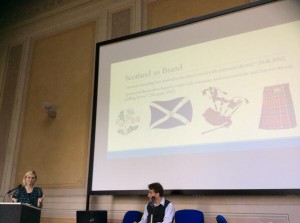

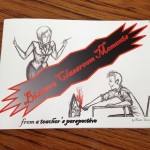

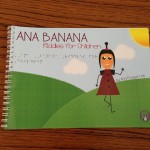
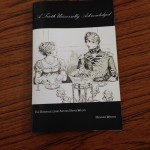



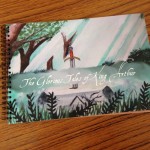
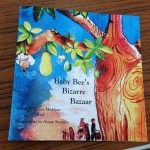

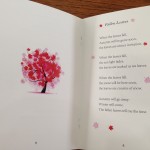
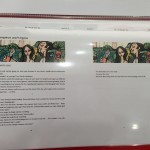






 Conny Lenz
Conny Lenz
 Alastair Horne
Alastair Horne